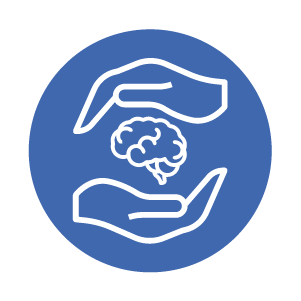
Facts About Heart Health: Celebrating a Strong Heart in February
Vineeta Shah
Health Educator
Emma Hardy
Health Educator
February isn’t just about chocolates and Cupid. It is a time to celebrate the unsung hero pounding away in your chest – the heart. In this age of social media, where misinformation about health abounds, it is crucial to separate fact from fiction. Therefore, this month, celebrate ways to keep your heart strong and body healthy with factual information.
FACT: Adopting a healthy lifestyle can significantly reduce the risk of heart disease, even if you have a genetic predisposition.
While genetics play a role, they do not write the entire script. Your lifestyle choices are equally as important. You have the power to edit your story by making heart-healthy choices and adopting a healthy lifestyle. Regular exercise, a balanced diet, and stress management can significantly impact your heart health.
FACT: Eating fat is not harmful.
All fats are not created equal. Saturated fats and trans fats can be harmful, but heart-healthy fats, such as those found in avocados, nuts, and olive oil, are essential to a well-balanced diet. These fats can lower overall cholesterol, and lower bad cholesterol. Specifically, Omega-3 fatty acids reduce plaque formation in arteries and lower triglycerides, which directly reduces the risk of developing cardiovascular disease.
FACT: Cardiovascular exercise is fun when you try different activities and find one you love.
There is a large variety of activities that will keep you healthy while having fun. Dance parties, hikes, and even activities such as laser tag are all excellent ways to work your heart muscle and cardiovascular system. Consider which activities bring you joy. How can you incorporate them into your day, week, or month more often? Turn on some tunes and get moving!
FACT: Cardiovascular exercise is fun when you try different activities and find one you love.
There is a large variety of activities that will keep you healthy while having fun. Dance parties, hikes, and even activities such as laser tag are all excellent ways to work your heart muscle and cardiovascular system. Consider which activities bring you joy. How can you incorporate them into your day, week, or month more often? Turn on some tunes and get moving!
FACT: It is crucial to obtain nutrients from a variety of whole foods.
While supplements can be beneficial in certain situations, consuming supplements does not replace eating a balanced diet that includes fruits, vegetables, and whole grains. Healthy foods have a wide variety of nutrients and benefits, such as protective factors in phytonutrients and antioxidants, as well as macronutrients, such as protein and fiber.
FACT: Stress management techniques are necessary for heart health.
Managing stress is just as important as following a healthy diet and exercising regularly. Chronic stress can take a toll on heart health. Prioritize fun activities that are also stress-reducing, such as yoga, reading, painting, or singing. Whichever activity you choose, finding peace and relaxation is essential for a healthy heart.

FACT: Alcohol, tobacco, and other drugs can negatively impact heart health.
The term “drug” refers to any chemical substance that changes the ways that your body systems work. The circulatory and nervous systems work closely together to keep the heart and brain functioning properly and allow you to live happy and healthy lives. It is essential to everyday life that these systems function properly. The drugs listed below, among others, can negatively impact the body in many ways.
- Cocaine: Changes in body temperature, high blood pressure, increased risk of heart attack or stroke, reduced blood flow to the heart and brain.
- Opioids: Increased risk of cardiovascular diseases and mortality.
- Marijuana: rapid heart rate, increased blood pressure, which lead to increased risk of cardiovascular diseases.
- Amphetamines: High risk of addiction, over-stimulates the central nervous system, which leads to increased heart rate and blood pressure.
The use of these drugs and others may contribute to the development of mental health disorders such as anxiety or depression and vice versa. The existence of a mental health disorder may increase the use of substances. To find mental health treatment services in your area, you can visit the Substance Abuse and Mental Health Services Administration (SAMHSA) website.
So what are healthy alternatives that keep your heart healthy and your body happy? These can also double as stress management techniques.
- Taking a walk outside or around a park or museum.
- Talking with a friend or family member on the phone or in person.
- Trying a new heart-healthy recipe.
- Practicing cardiovascular fitness by going on a run or bike ride.
- Doodling, coloring, or writing thoughts down in a journal.
This February, take the opportunity to show love to the vital organ that keeps you alive – your heart. By debunking myths and adopting heart-healthy habits, you can ensure your heart continues to beat strong for many years to come.
Featured Program: Healthy Habits
Are you ready for an adventure? Discover the importance of healthy habits, check out what foods belong on “MyPlate” and visit the Poe Cafeteria. Learn about the importance of physical activity and heart health during your expedition, too!
Program Participants: Kindergarten, 1st Grade
Program Length: 45 Minutes

Featured Program: Media Mythbusters
Media Mythbusters is a nutrition program that guides students through the harms of fad-diets and helps them understand how the media can influence food choices. Students will learn the signs of inaccurate versus accurate nutrition information, as well as food marketing tactics. By the end of this program, students will be able to analyze and decipher the media to understand its messages and have a greater knowledge of nutrition.
Program Participants: 6th grade, 7th Grade, 8th Grade
Program Length: 60 Minutes
Program Type: Virtual
Featured Program: Foundations of Wellness
During this 90 minute program, participants will explore the positives and negatives of stress and the impact ongoing stress can have on their bodies. Attendees will be able to identify signs of stress and symptoms of anxiety and depression. Throughout the program, participants will learn tips and techniques that support self-care. These tools will help empower youth to develop a plan to decrease ongoing stress, promote a wellness routine, and to talk to trusted adults and support their peers.
Program Participants: 9th Grade, 10th Grade, 11th Grade, 12th Grade
Program Length: 90 Minutes

Featured Resource: Stress Management for Students
Check out the following article for information on stress management in a classroom setting and what may be causing the stress. Includes stress management techniques for all grade levels!

References:
American Heart Association. (Year). Healthy Lifestyle Habits. Retrieved from https://www.heart.org/en/healthy-living/healthy-lifestyle/habits
American Heart Association. (Year). Fitness Tips. Retrieved from https://www.heart.org/en/healthy-living/fitness
Harvard Health Publishing. (Year). Eating for Heart Health. Retrieved from https://www.health.harvard.edu/heart-health/eating-for-heart-health
Academy of Nutrition and Dietetics. (2022). Love Your Heart, Love Your Food. Retrieved from https://www.eatright.org/health/health-conditions/cardiovascular-health-heart-disease-hypertension/love-your-heart-love-your-food
Illegal Drugs and Heart Diseases. (2024). American Heart Association. Retrieved from https://www.heart.org/en/health-topics/consumer-healthcare/what-is-cardiovascular-disease/illegal-drugs-and-heart-disease#:~:text=Most%20illegal%20drugs%20can%20have,blood%20vessels%20and%20heart%20valves.
How the Healthy Heart Works. (2018). American Heart Association. Retrieved from https://www.heart.org/en/health-topics/congenital-heart-defects/about-congenital-heart-defects/how-the-healthy-heart-works
Substance Use and Co-Occurring Mental Disorders. (2023). National Institute of Mental Health. Retrieved from https://www.nimh.nih.gov/health/topics/substance-use-and-mental-health
